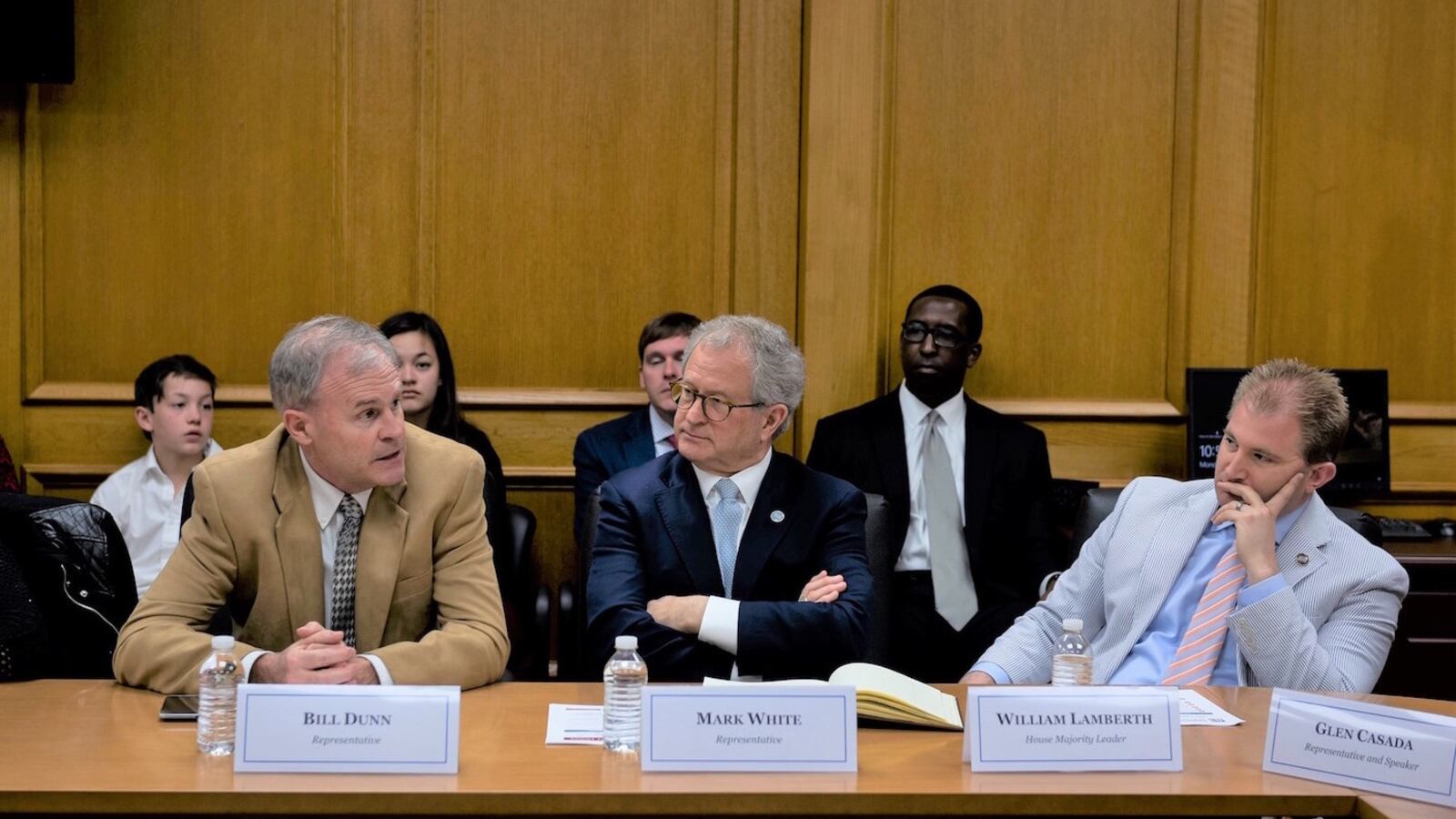Six of the 10 Tennessee legislators negotiating the future of Gov. Bill Lee’s education voucher proposal have strong ties to private or home schools, while only one represents an entire urban public school district that’s likely to be affected.
Seven have never had a child attend public schools.
The conference committee charged with reconciling House and Senate voucher bills is scheduled to officially begin its work on Wednesday, although informal discussions began on Tuesday out of the public eye after Lt. Gov. Randy McNally and Speaker Glen Casada named the members.
Hanging in the balance is the Republican governor’s proposal to create an education savings account program to let some families use taxpayer money to pay for private school tuition, homeschooling expenses, or related education services. A compromise bill approved by both chambers would mark a historic shift in Tennessee education and open the door to policies that the state’s legislature has rebuffed for more than a decade.
The dueling bills were approved last week but have major differences, including disagreements over funding, testing requirements, which school districts would be affected, and whether to include homeschoolers. (See our breakdown of the issues here.)
Conferees are expected to quickly limit the proposed program to students and school districts in Memphis and Nashville — and remove those in Knoxville and Chattanooga, which are also home to schools that are academically in the state’s bottom 10 percent.
Sen. Raumesh Akbari is the only Memphian and one of two Democrats on the conference committee appointed by Republican leaders. Nashville has no representation on the panel, although Metropolitan Nashville Public Schools is expected to be affected.
Here’s a rundown of each of the conference committee members and their K-12 education background:
Sen. Raumesh Akbari, D-Memphis: The Senate Education Committee member attended Memphis-area public schools, including Chimney Rock Elementary, Cordova Middle, and Cordova High schools before receiving her college degree at Washington University in St. Louis and a law degree from St. Louis University.
Sen. Mike Bell, R-Riceville: A graduate of Bradley Central High School, Bell and his wife have homeschooled their five children.
Rep. Charlie Baum, R-Murfreesboro: The freshman lawmaker graduated from Bearden High School in Knoxville. An economics professor at Middle Tennessee State University, he has three children, all of whom attend public schools in Rutherford County.
Rep. Bill Dunn, R-Knoxville: The lawmaker who has shepherded the governor’s bill in the House, Dunn attended Catholic schools in Knoxville and homeschooled his five children before sending them to Catholic schools. Dunn’s public school connections include several years of working as a 4-H agent in Grainger County Schools, a daughter who worked as a public school teacher, and a son-in-law who currently teaches in public schools.
Sen. Dolores Gresham, R-Somerville: The chairwoman of the Senate Education Committee is also chairwoman of the conference committee and is an outspoken advocate for giving parents more education choices for their children. She holds degrees from three private universities, and did not respond to requests for information about her K-12 education experience. Gresham has shepherded the governor’s voucher bill in her chamber.
Rep. Matthew Hill, R-Jonesborough: The former voucher opponent, who switched his vote in favor of Lee’s proposal this year, attended a mix of public, private, and home schools in northeast Tennessee before graduating from Tri-Cities Christian High School in Blountville.
Rep. Andy Holt, R-Dresden: A graduate of South Doyle High School in Knoxville, Holt and his wife homeschool their six children.
Sen. Brian Kelsey, R-Germantown: An attorney from a mostly affluent Memphis suburb, Kelsey graduated from Memphis University School, an elite college prep school founded in 1893. He went on to earn degrees at the University of North Carolina at Chapel Hill and Georgetown University. Kelsey frequently touts his private school education for giving him opportunities that he says he would not have had at a public school. His district also includes a small number of schools in Shelby County Schools.
Sen. Jack Johnson, R-Franklin: The majority leader, who is sponsoring the governor’s voucher bill in the Senate, graduated from public schools in Texas. All three of his children attend public schools in Williamson County.
Rep. Rick Staples, D-Knoxville: One of two Democrats and three urban lawmakers on the conference committee, Staples is a graduate of Holston High School in Knoxville. He did not respond to queries about his choices for educating his four children.
Correction: May 2, 2019: This story has been updated to clarify that only one of the conferees, Sen. Raumesh Akbari of Memphis, represents an entire school district that was likely to be affected by the legislation. Sen. Brian Kelsey’s suburban Germantown district includes a small number of schools within Shelby County Schools.

